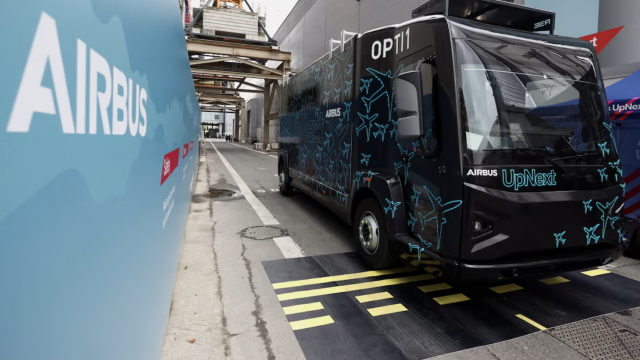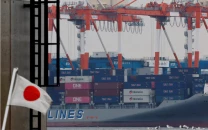Airbus fits electric truck with airliner cockpit to study safer taxiing
Automated taxiing will make airports safer as concern grows over a spate of jetliners colliding on the ground

Airbus (AIR.PA), opens new tab is showing off an unusual vehicle - a truck fitted with basic A350 airliner controls - that it hopes can demonstrate how automated taxiing will make airports safer as concern grows over a spate of jetliners colliding on the ground.
The converted electric truck at VivaTech, Europe's biggest technology event, can be driven normally, or the aircraft systems can be given control. Sensors keep track of warning lines and obstacles as onboard computers guide the vehicle to a specific location, accelerating and braking as needed
"These use cases are much more critical and complicated compared to those of the car industry," said Matthieu Gallas, head of automation research at Airbus UpNext,the planemaker's innovation lab. "Copying and pasting technology already available on the market won't work."
Airbus is at pains to avoid linking the research to specific accidents, but comparisons with January's fiery Tokyo collision between a landing A350 and a coast guard plane that appeared to have strayed onto the runway are inevitable. Airbus declined comment on the accident, which is being investigated.
A separate investigation was launched last month after the wingtip of an empty Virgin Atlantic jet collided with a stationary British Airways jet. In February, U.S. regulators said they would look into a collision between two JetBlue planes at Boston Logan.
Airbus hopes the vehicle crawling through a side alley of the Paris exhibition centre hosting the tech billionaires and startups of VivaTech shows how automation can help safely squeeze $100-million-plus jets through increasingly congested airports.
Lidar hopes
Slow-speed ramp incidents are rarely fatal but represent a costly and growing headache for airlines, airports, insurers and passengers caught up in resulting delays.
Airbus UpNext said it had teamed up with Israeli electric vehicle maker Ree Automotive (REE.O), opens new tab to build the hybrid research platform as part of its three-year "Optimate" project.
The plane-truck will be tested at live airports and could pave the way for later tests on an A350-1000 aircraft.
If successful, the project could result in changes to plane design, but getting novel systems certified is a daunting task.
Regardless of what happens, pilots will remain in the loop, Gallas said. Airbus jets already use automation to limit pilot error, though the software is not autonomous, meaning it can only behave in a predictable way.
Equipped with 3D-mapping LiDAR light sensors, the research vehicle could explore higher levels of automation later, though Airbus says it has no plans to introduce autonomy in jetliners.
The potential for LiDAR is already in the spotlight after severe turbulence battered a Singapore jet this week, leaving one passenger dead of a suspected heart attack and dozens injured. Boeing began tests in 2018 and experts hope LiDAR will track unstable currents that elude radar.
"LiDAR is 'the' technology," ex-auto executive Karim Mokaddem, head of Airbus commercial research and technology, told Reuters.



















COMMENTS
Comments are moderated and generally will be posted if they are on-topic and not abusive.
For more information, please see our Comments FAQ